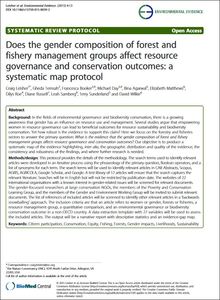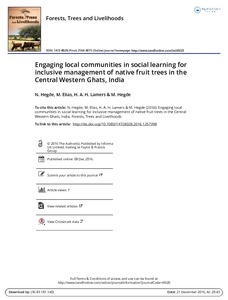Decentralization of forest administration in Indonesia: implications for forest sustainability, economic development and community livelihoods
Since the collapse of Soeharto’s New Order regime in May 1998, Indonesia’s national, provincial, and district governments have engaged in an intense struggle over how authority and the power embedded in it, should be shared. How this ongoing struggle over authority in the forestry sector will ultimately play out is of considerable significance due to the important role that Indonesia’s forests play in supporting rural livelihoods, generating economic revenues, and providing environmental services.



